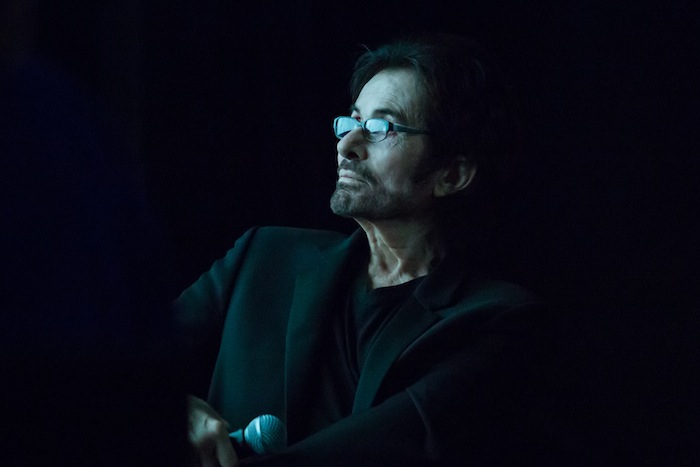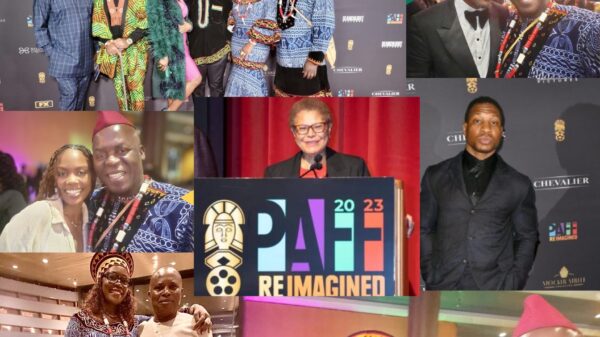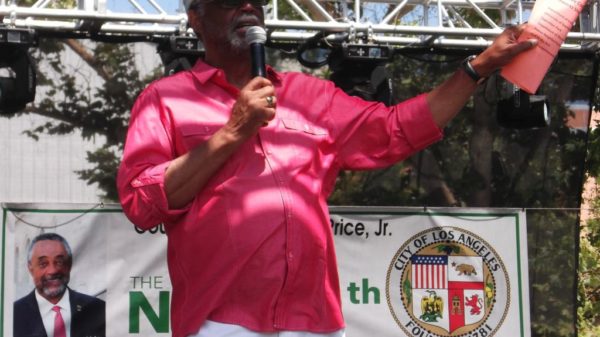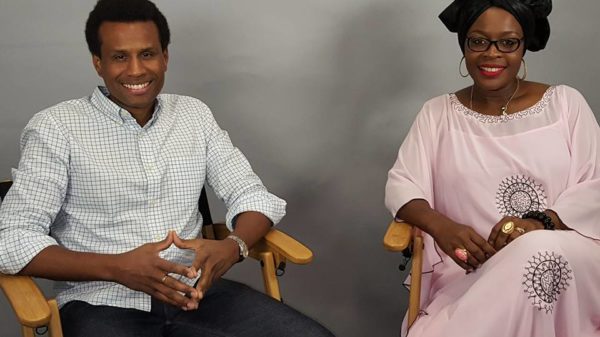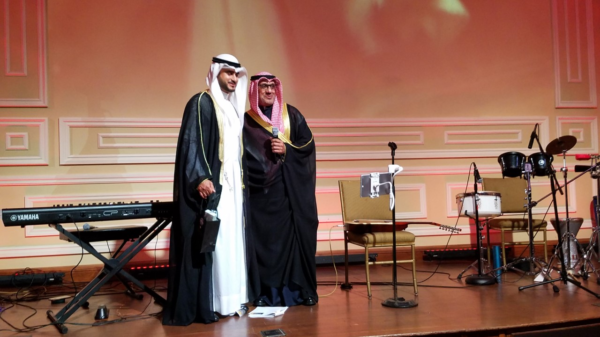In a society that often fixates on youth and novelty, the subject of aging frequently remains in the shadows. Ethnic Media Services (EMS) recognized this critical oversight and initiated a thought-provoking briefing titled “Challenging Ageism and Reimagining Aging: The Many Stages of Elderhood.” This session delved into the pervasive issue of ageism, which entails discrimination against older individuals and seeps into various aspects of life, including entertainment, media, the workplace, and healthcare. It assembled a panel of experts to shed light on age bias, California’s Master Plan on Aging, and the seven stages of Alzheimer’s disease. The distinguished panel of speakers included Dr. Louise Aronson, a professor at the University of California, San Francisco, renowned for her expertise in geriatrics and author of the Pulitzer Prize-finalist book “Elderhood: Redefining Aging, Transforming Medicine, Reimagining Life”; Cheryl Brown, Chair of the Executive Committee for the California Commission on Aging and a driving force behind California’s Master Plan on Aging; and Dr. Barry Reisberg, a distinguished Professor of Psychiatry at NYU Langone Health and Adjunct Professor at the Centre for Studies in Aging at McGill University, known for developing the Global Deterioration Scale that categorizes the seven stages of Alzheimer’s disease.
Dr. Louise Aronson embarked on the discussion by providing a historical perspective on aging. She emphasized that humans, as a species, have been aging for thousands of years, but our perception and experience of old age have evolved significantly over time. Old age, once primarily associated with mortality, is now viewed through a more nuanced lens. The COVID-19 pandemic played a significant role in highlighting the significance of age, with older individuals facing a heightened risk of severe outcomes. Dr. Aronson stressed, however, that age is just one factor, and disparities rooted in race and ethnicity also play a substantial role in health outcomes.
Furthermore, Dr. Aronson touched on the fluid definitions of middle age, old age, and elderly status. She pointed out that societal perceptions of these stages have evolved over time, challenging the notion that what was considered old in the past remains unchanged today. In the United States, life expectancy has faced a decline, with substantial disparities tied to privilege and socioeconomic factors. Dr. Aronson underscored that these inequalities in life expectancy are not solely due to biological factors but are shaped by social and economic choices.
Additionally, Dr. Aronson critiqued prevailing narratives about aging. While stories of extraordinary elders are inspiring, they can sometimes foster unrealistic expectations or convey the impression that successful aging is out of reach for ordinary individuals. She discussed the detrimental nature of terms like “anti-aging” and the disproportionate allocation of resources to extend the lives of those who are already privileged, at the expense of providing care to those in need. Dr. Aronson passionately advocated for a paradigm shift in how society views aging, encouraging the recognition of the value in every stage of life and the contributions individuals of all ages can make.
In closing, Dr. Aronson addressed the issue of ageism within the healthcare system. Despite a significant older population, medical education, research, and healthcare systems do not adequately address the unique needs of older individuals, exposing systemic age discrimination. In summary, she illuminated the pervasive issue of ageism, challenged societal perceptions of aging, and championed a more inclusive and equitable approach to growing old, where every stage of life is valued.
Cheryl Brown, as the Chair of the Executive Committee for the California Commission on Aging, played a pivotal role in the briefing. Her expertise and unwavering commitment to enhancing the lives of older Californians were evident throughout her presentation. Cheryl Brown’s leadership as the Chair of the Executive Committee of the California Commission on Aging has been instrumental in advocating for the needs and rights of older Californians. She has been a driving force behind efforts to effect positive change for this demographic. Her role as a key architect of California’s Master Plan on Aging underscores her dedication to long-term planning and policy development aimed at addressing the challenges faced by older adults in the state.
During the briefing, Cheryl Brown outlined the commission’s priorities for the year, which include improving behavioral health services for older adults, expanding workforce opportunities, enhancing services for older adults, and addressing homelessness and housing options for this demographic. Her clear articulation of these priorities serves to focus attention on critical areas of concern. Cheryl Brown’s unwavering commitment to diversity, equity, and inclusion (DEI) was evident in her dedication to explaining the significance of equity over equality. She emphasized the need to provide services tailored to individual needs, ensuring that all older Californians have access to the support and resources they require.
Cheryl Brown’s ability to distill complex concepts, such as DEI, through the creation of a glossary and relatable examples, has been instrumental in fostering better understanding among stakeholders. This approach ensures that everyone involved in the aging community can communicate effectively and work toward common goals. Her mention of the “Silver Tsunami” and her use of the term in the legislative context highlights her talent for raising awareness about the challenges faced by the aging population. Her ability to garner attention and support for these issues has been a valuable asset.
In summary, Cheryl Brown’s contributions to the briefing are distinguished by her leadership, advocacy, and ability to effectively communicate complex ideas. Her work continues to shape policies and initiatives aimed at enhancing the quality of life for older adults in California.
Dr. Barry Reisberg, a distinguished Professor of Psychiatry at NYU Langone Health and Adjunct Professor at the Centre for Studies in Aging at McGill University brought invaluable insights to the briefing by discussing the Global Deterioration Scale (GDS) and the various stages of Alzheimer’s disease. His pioneering work in developing the Global Deterioration Scale has had a profound impact on our understanding of the progression of Alzheimer’s disease.
Dr. Reisberg’s presentation offered a comprehensive overview of the 16 stages of Alzheimer’s disease, presented in a clear and concise manner. He elucidated how individuals progress through these stages, beginning with subjective memory complaints and culminating in advanced stages requiring extensive assistance. He emphasized the functional decline that accompanies the advancement of Alzheimer’s disease, providing specific examples of how individuals experience difficulties in everyday tasks, such as managing finances, dressing, bathing, and even speaking as the disease progresses.
Furthermore, Dr. Reisberg highlighted the challenges faced by individuals in the later stages of Alzheimer’s disease, where ambulatory ability is compromised, and they gradually lose the ability to walk, sit up, smile, and even hold their heads up. Dr. Reisberg also provided approximate timeframes for each stage, helping attendees understand the timeline of Alzheimer’s disease progression. This information can be invaluable for families and caregivers who are dealing with the disease.
Perhaps most importantly, his presentation challenged common misconceptions about Alzheimer’s disease, particularly regarding the ability of individuals to remain engaged in various activities and the workforce, even up to stages 4 and 5 of the disease. This emphasis on maintaining engagement highlighted the importance of providing support and accommodations for those with Alzheimer’s to continue participating in daily life.
In conclusion, Dr. Barry Reisberg’s contribution to the briefing offered a profound understanding of Alzheimer’s disease progression and the significance of the Global Deterioration Scale in assessing the needs of individuals at different stages of the disease. His insights undoubtedly continue to guide families, caregivers, and policymakers in providing better care and support for those affected by Alzheimer’s.
In closing, the briefing served as a beacon of enlightenment, casting a piercing light on the often-neglected subject of aging in a world perpetually enamored with youth and novelty. Through the wisdom and insights shared by our distinguished panel of experts, the session not only exposed the insidious nature of ageism but also ignited a fervent call to action.
Dr. Louise Aronson’s historical perspective on aging reminded us that the journey of growing old is an integral part of the human experience, one that has evolved over millennia. Her call to dispel age-related disparities based on race and ethnicity urged us to confront not just the years that have passed but also the inequities woven into our societal fabric.
Cheryl Brown’s unwavering commitment to improving the lives of older adults in California, coupled with her advocacy for diversity, equity, and inclusion, highlighted the urgency of crafting inclusive policies and services for our aging population. She illuminated the looming “Silver Tsunami,” challenging us to confront the impending wave of aging individuals and the need for comprehensive strategies to support them.
Dr. Barry Reisberg’s illuminating discourse on Alzheimer’s disease progression and the Global Deterioration Scale underscored the importance of understanding and addressing the evolving needs of those affected. His insights emphasized the potential for individuals with Alzheimer’s to maintain a sense of purpose and engagement, even in the face of cognitive challenges.
Collectively, these experts catalyzed a paradigm shift in our perceptions of aging. They inspired us to see every stage of life as a valuable chapter in our shared human narrative, each offering unique contributions and wisdom. Moreover, they ignited a passionate plea for the dismantling of ageist stereotypes, the eradication of discriminatory practices, and the championing of inclusive, equitable approaches to aging.
As we reflect on the EMS briefing’s profound impact, it is clear that the seeds of change have been sown. It is incumbent upon us, as individuals, communities, and societies, to nurture these seeds, ensuring that they blossom into a future where aging is celebrated, discrimination is dismantled, and every individual is empowered to live their later years with dignity, purpose, and the unwavering support they deserve.
In embracing this vision, we embark on a collective journey—one that challenges ageism, reimagines aging, and celebrates the many stages of elderhood. Together, we can create a world where the wisdom of age is cherished, the barriers of discrimination are torn down, and the twilight years of life are illuminated with the vibrancy and promise they truly hold.
#Ageism #AgingWisdom #InclusiveAging #ElderhoodJourney #CelebratingAging #DismantleAgeism #ReimagineAging #AgeWithDignity #ElderlyEmpowerment #AgeEquality #SilverTsunami #AgingWithPurpose #AgingTogether #EmbracingElderhood #AgeDiscrimination #ChallengingStereotypes #AlzheimersInsights #GlobalDeteriorationScale #AlzheimersSupport #AgingCommunity #ElderlyRights #DiversityInAging #AgeAwareness #AgePositive #AgingGracefully #ElderlyCare #AgingInclusivity #AgingWell #ElderlyWisdom #AgeFriendlySociety #AgeEqualityNow



